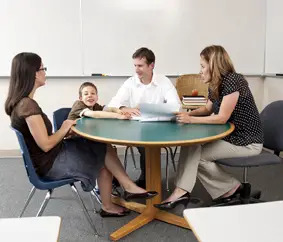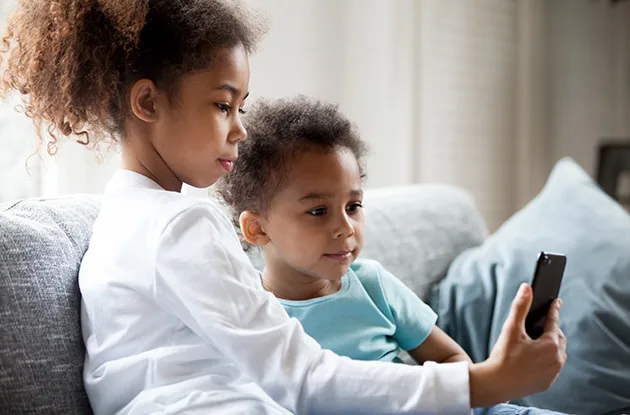When your child is receiving treatment from multiple therapists and professionals, communication is key. Here, a psychologist with more than 20 years experience offers advice on how to make sure your child’s treatment team is talking often and communicating effectively.
How often should I expect my child’s treatment team to communicate with one another?
 It depends. When I’m working with a child who’s in the midst of an acute crisis, my contact with the other professionals—the psychiatrist, the teacher—can sometimes be one or more times a day, because you need everyone up to date to make sure the issues are really being dealt with.
It depends. When I’m working with a child who’s in the midst of an acute crisis, my contact with the other professionals—the psychiatrist, the teacher—can sometimes be one or more times a day, because you need everyone up to date to make sure the issues are really being dealt with.
On a more typical basis, with a child who is relatively stable and attending a once-a-week therapy appointment, the contact should be once every week to two weeks. And that contact can be (with your written consent) just a quick catch-up email.
For kids who are quite stable and don’t have a lot of emergent issues coming up, touching base with the other providers once every three weeks to a month is sufficient.
People trained to work with kids are trained to understand the value of that type of collaboration, but you get people who know it’s politically correct and then don’t end up doing it in practice. A parent would be well served to ask if they collaborate with other professionals and to really get specific examples of how they collaborate and how treatment is affected. Is there time carved out for collaboration? Do they have regular team meetings or case conferences on a consistent basis?
How can I encourage communication among my child’s treatment team?
If you’re working with a multidisciplinary team of independent professionals across different locations, always make sure that you and the providers are clear about who is the point person—the case manager, essentially.
Be direct about your expectations up front, and make sure in your initial conversations with those clinicians that you express how much you value communication among all involved parties and you’re willing to sign any consent forms to make that happen. Try to cover as many of those pieces as you can before treatment starts so everyone is on the same page.
What should I do if I feel the team is not communicating effectively?
But don’t assume the communication is happening—as a parent, you need to take on that extra responsibility of tying the loop. I recommend that parents, once every week or two weeks, send an email and cc everyone on your child’s treatment team to check in on how everyone is doing and ask if there’s any part of the treatment you need to be reinforcing at home. If you send a group email, it’s easy for people to hit “reply all” and keep the conversation going.
If you still feel like communication is not occurring, schedule a time to chat with your treatment team on the phone.
If those pieces don’t work, put your concerns in writing. Write down your expectations, and if that’s not something they’re comfortable agreeing to, you should start looking for a different clinician.
Also see: How Do I Know if a Multidisciplinary Approach to Treatment Is Right for My Child?
Christopher Bogart, Ph.D., is a licensed clinical psychologist and executive director of the Southfield Center for Development in Darien, CT, where his staff takes an integrated approach to treating the learning, emotional, behavioral, and medical issues that affect children. Dr. Bogart received his doctoral degree from The American University in 1986.





















